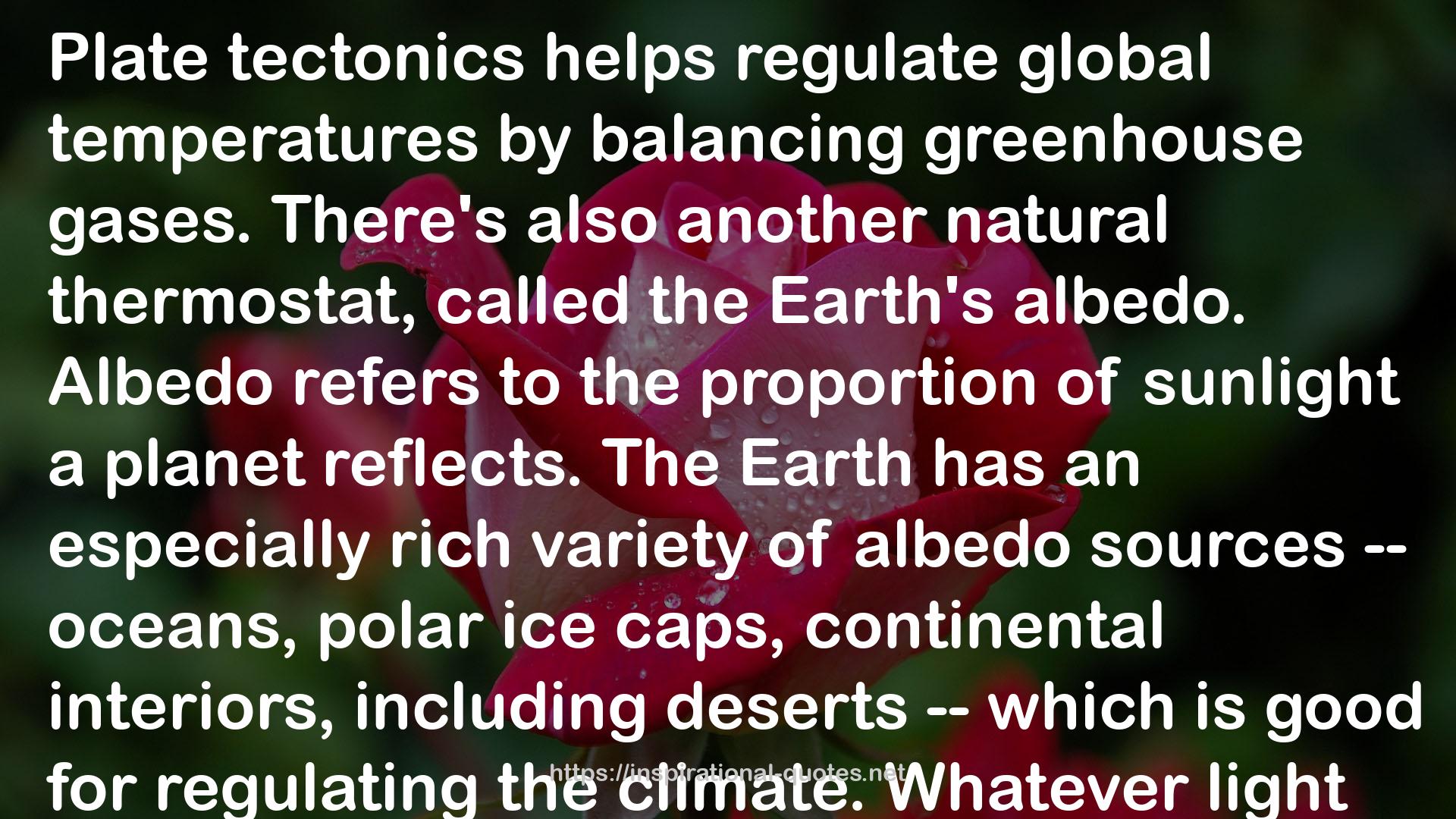" Plate tectonics helps regulate global temperatures by balancing greenhouse gases. There's also another natural thermostat, called the Earth's albedo. Albedo refers to the proportion of sunlight a planet reflects. The Earth has an especially rich variety of albedo sources -- oceans, polar ice caps, continental interiors, including deserts -- which is good for regulating the climate. Whatever light isn't reflected by Earth is absorbed, which means the surface gets heated.
This is self-regulated through one of the Earth's natural feedback mechanisms. To give you an example, some marine algae produce dimethyl sulfide. This helps to build cloud condensation nuclei, or CCN, which are small particles in the atmosphere around which water can condense to form cloud droplets.
If the ocean gets too warm, then this algae reproduce more quickly and release more dimethyl sulfide, which leads to a greater concentration of CCN and a higher albedo for the marine stratus clouds. Higher cloud albedo, in turn, cools the ocean below, which then reduces the rate at which the algae reproduce. So this provides a natural thermostat.
-- Guillermo Gonzalez, Ph.D. (astronomer & physicist) "
― Lee Strobel , The Case for a Creator: A Journalist Investigates Scientific Evidence That Points Toward God
